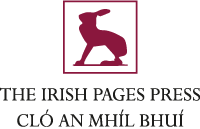Our New Issue: Two Launches
BELFAST
“From Begrudgery to Hyperbole: On Recent Irish Fiction”
Launch of “Criticism” (Vol 10, No 1)
Belfast Book Festival
Saturday 16 June at 6.30 pm
Crescent Arts Centre
2-4 University Road
Belfast BT7 1NH
With readings and discussion from Patricia Craig, David Park, Kerry Hardie and Chris Agee
From “Irish Fiction in Three Acts” by Patricia Craig
“…Not only, it seems, has a new wave of fiction burst upon us, but a change of tone has overtaken its reception. Dublin, once famous for begrudgery, has now performed a volte face and opted instead for hyperbole. It’s almost as if a network of support for new creative writing has come into being, involving social media, publicity departments, newspaper reviewers and so forth. One result of this is excessive promotion for some titles …”
Wine will be served. This is a ticketed event and advance booking is advised here
LONDON
“Poetry, Criticism and The Belfast Agreement”
8 June 2018 at 7.00 pm
Edmund Safra Theatre
Kings College London
Strand, London WC2R 2LS
The series Poetry And at Kings College London joins Irish Pages to celebrate its two latest issues, “Criticism” (Vol 10, No 1) and “The Belfast Agreement: Twentieth Anniversary Issue” (forthcoming). Speakers include Eva Hoffman on Europe’s “internal others,” and how the seeds of violence are sown in peace; Chris Agee on the Twentieth Anniversary of the Belfast Agreement; Hugh Dunkerley on poetry and fracking, as well as poetry’s role in an age of ecological destruction; and poetry on Lesbos and Syria from Ruth Padel.
Poetry And is a series of free events held in the Strand on midweek evenings from 7.00-9.00 pm. These events, curated and chaired by Ruth Padel, are normally held in the sumptuously welcoming venue of King’s Chapel or in the Edmund Safra Lecture Theatre, and include questions and informal post-event chat over free wine.
They combine some of today’s most exciting poetry voices with leading experts in other fields, from climate change and neuroscientists to historians, TV directors, psychiatrists, war veterans, and leading academics. The “other experts” enjoy speaking about their own discipline or art in terms of poetry, while the poets enjoy presenting their work with a focus on the other discipline. Apart from introducing vital new poetry to students and the general public, Poetry And aims to showcase poetry’s connectivity and relevance not only to other academic disciplines but to the vital global issues of today.
Chris Agee is Editor of Irish Pages. His third collection of poems, Next to Nothing, was shortlisted for the 2009 Ted Hughes Award for New Work in Poetry. Eva Hoffman, author of Lost In Translation and Human Time, often compared to Primo Levi, has won the Prix Italia Prize for radio and writes for the New York Review of Books. A poet and ecocritic, Hugh Dunkerley is a Reader in Creative Writing and Contemporary Poetry at the University of Chichester. Ruth Padel is Professor of Poetry at Kings College London, and author of 11 books of poems, most recently Emerald.
This is a free, ticketed event and wine reception. Please register here.
“CRITICISM”
(Vol 10, No 1)
“The battle of political ideas is waged in the cultural sphere as a whole.”
In addition to literary criticism of the traditional variety, there is a particular focus on the critical spirit in all genres, whether literary essays, non-fiction, memoir, travel writing, poetry, fiction or other work of imaginative distinction. By “Criticism,” we mean, of course, in equal measure, both the brandy of praise and the poteen of critique. Following the journal’s usual procedure, some of the work included is independent of the cover title. In this issue:
Eva Hoffman on Europe’s “Internal Others”
A poem by Derek Mahon
Neil Corcoran on “The Mahon Prose”
The Good, the Bad & the Dire: Patricia Craig on recent Irish fiction
An homage to Catalonia
Mark Cousins on “The Story of Looking”
New fiction by David Park & Kerry Hardie
Brendan Corcoran on Heaney’s “ecological” laments
& Hugh Dunkerley on “Poetry and Fracking”
New essays by Kathleen Jamie, Seán Lysaght,
Bernard O’Donoghue, Stewart Sanderson & Scott Hames
An extraordinary reflection on the Internet of Things
Poems by Ruth Padel, Moya Cannon & Thomas McCarthy
Máirtín Ó Muilleoir on the Irish Language Act
New Poetry in Scots and Scottish Gaelic
PLUS: “Ways of Seeing”
A remarkable photographic portfolio by Sonya Whitefield
“Now, dialogue may seem like an overused term, and a facile panacea; but in fact, authentic dialogue is anything but easy. It needs empathy and it needs courage. It cannot proceed from the position either of putative superiority, or self-effacement. To condescend to our interlocutors in such encounters is of course to diminish and humiliate them; but to defer to others automatically because we perceive them as vulnerable, or less privileged, or as ‘our victims’ – is to assume that they are divested of agency and incapable of responsibility. From the minority side, such dialogue also requires an effort of openness and the courage to step outside the rules of the tribe. If we perceive our interlocutors merely as representatives of power, or as incapable of real understanding or change, we are guilty of prejudice too. And again, I say ‘we,’ because I have been on that side of the equation as well. Equality, it seems to me, is not only an economic, but an ethical achievement.”
from “On Internal Others” by Eva Hoffman


